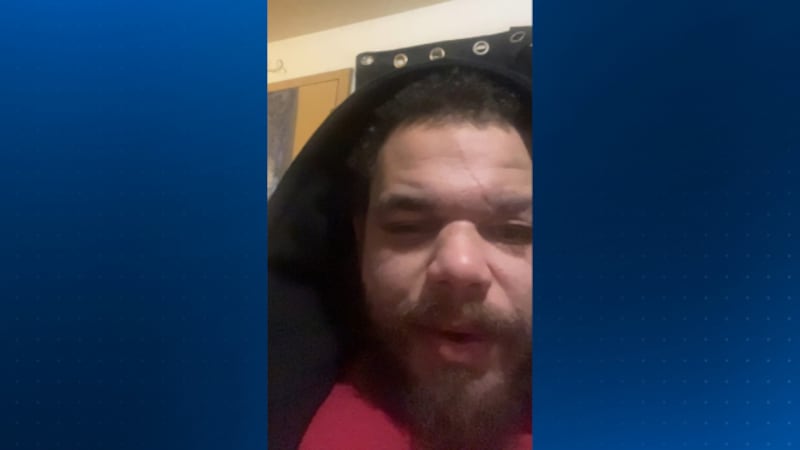“It’s a topic that nobody talks about, but once you bring it up it has touched like everybody,” said Christopher’s Kitchen Founder Joan D’Alessandro.
D’Alessandro is talking about suicide. Ten years ago, it touched her life when her stepson, Christopher, committed suicide at 16 years old.
“Christopher had no signs,” said D’Alessandro. “It’s the kids who don’t say anything that actually do it.”
D’Alessandro says a living nightmare began.
“When he passed, my husband would drive us to the cemetery on Christmas morning, and it was so brutal,” said D’Alessandro.
Each person in her family dealt with the loss of Christopher differently. D’Alessandro eventually found comfort inside UPMC Children’s Hospital in Pittsburgh.
“We went in once a month,” said D’Alessandro. “We did hair. We did nails. I’m sitting there, and these people want to talk about their child. What’s going on. I’m just sitting there observing all their hurt and all their pain, but I really feel that they saved my life.”
D’Alessandro channeled all these heart-wrenching emotions — hers and theirs — into Christopher’s Kitchen. It’s a place for parents to get free food inside Children’s Hospital.
“I don’t want to see another parent hurt. I don’t want to see someone go through what I am still going through, and my family is still going through. So, if I can do one little thing to ease someone’s burden, I’m all in. I’m all in,” she said
“It allows them to feel like they are doing something about it,” said Licensed Professional Counselor and Behavioral Health Therapist Colleen Fisher. “Doing something about their grief and channeling their grief into something that is positive.”
Fisher helps patients out of UPMC Children’s Pine Center. She says it’s extremely important for people to not be afraid of asking for help with dealing with grief.
“Seeking help in those times can be critical for people as to whether or not they have a better quality of life or as to whether or not they stay alive,” said Fisher. “And that is a really big deal.”
She says it’s just like calling a doctor when you’re sick.
“For a lot of people, it’s getting past that initial step of admitting that there’s something wrong or that you’re not capable as a person to be able to take care of it yourself,” said Fisher. “That is so different in how we take care of physical health where it’s so natural and normal if you get a cold to go get medicine. If you’re not feeling well, call your doctor. But when we’re not able to handle things emotionally and mentally for some reason a lot of times people blame themselves. There’s something inherently wrong with me that I can’t get over this or I can’t find a way to cope with this experience when the reality is we’re not built to handle enormous amounts of stress or enormous emotions.”
Fisher says the more people talk about loss, the less fear surrounds it. But forcing those conversations backfires.
“Don’t assume people will come to you, but offer that extension to say I am here to listen if you need me to,” said Fisher.
Fisher also pointed out that mixed emotions around the holidays are normal.
“The holidays are a weird time to experience grief and loss and trauma because it is such a celebratory season and generally thought of as a happy season,” said Fisher. “And so a lot of times, it feels uncomfortable for people to be sad or upset or grieving during that time.”
On the flip side, some people feel guilty for feeling moments of joy during the holidays.
“A lot of people will experience grief or loss and be confused as to why they might feel happy and feel like celebrating during the holidays,” said Fisher. “That’s a really common experience that we see. They might feel some guilt around that if they do feel like celebrating. It’s really a natural normal process of grief, and it’s kind of a sign to them that they’re reaching some acceptance, and they can also celebrate somebody’s life or their achievement in overcoming a difficult situation.”
Creating memory boxes and new traditions helps heal, too.
“I hang his stocking up every year,” said D’Alessandro. “It’s a private time, and I have a prayer in the stocking that I read. And that is my time. I make sure nobody’s in the house, and I cry. And I read this. The crux of it is don’t worry about me, I’m spending Christmas with Jesus this year. You have to carve out these little places that you feel safe in letting yourself feel vulnerable.”
And instead of going to the cemetery on Christmas, D’Alessandro feeds her soul in Christopher’s Kitchen.
“I just go there,” said D’Alessandro. “That’s my new norm. That’s how I cope with that empty space.”
Help is a phone call or text away with the number 988. According to 988lifeline.org, 988 has been designated as the new three-digit dialing code that will route callers to the National Suicide Prevention Lifeline — now known as the 988 Suicide & Crisis Lifeline — and is now active across the United States.
When people call, text, or chat 988, they will be connected to trained counselors that are part of the existing Lifeline network. These trained counselors will listen, understand how their problems are affecting them, provide support, and connect them to resources if necessary.
ADDITIONAL RESOURCES:
https://www.nctsn.org/what-is-child-trauma/trauma-types/traumatic-grief
https://www.upmc.com/services/behavioral-health/resolve-crisis-services
https://christopherskitchen.org/
TRENDING NOW:
©2022 Cox Media Group






